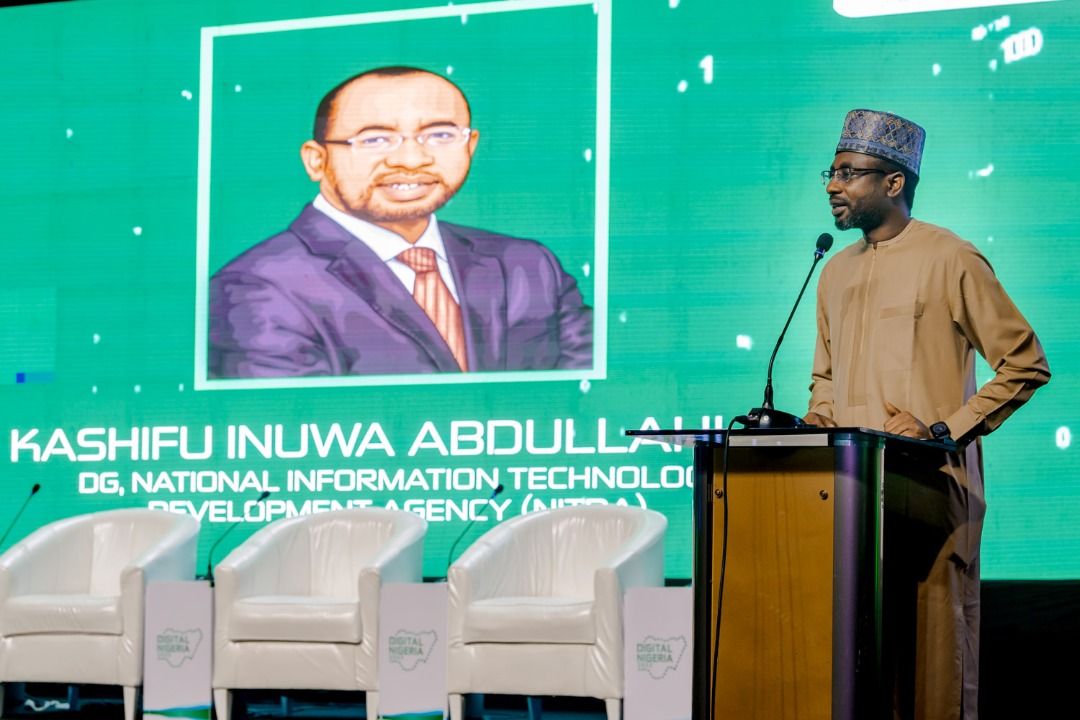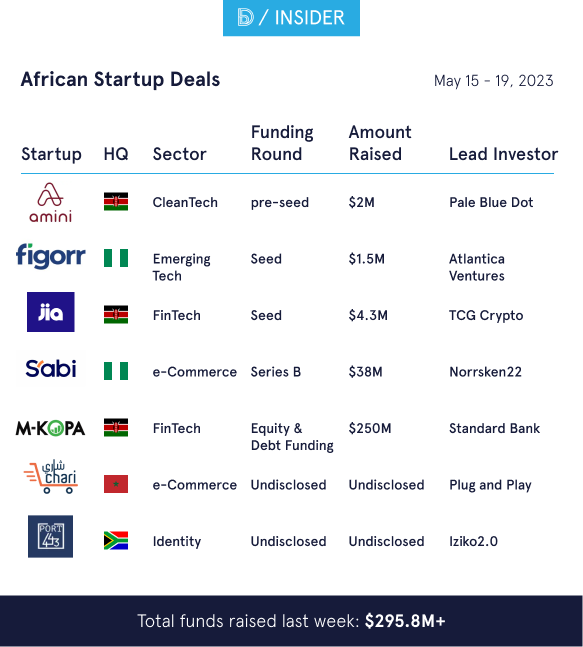BD Insider 163: Nigerian senate still wants to pass the NITDA Bill
The controversial NITDA bill might be passed by the Senate. we also explored the proposed launch of Africa's cheapest smartphone in Kenya, the latest about MTN mobile money operations in Cameroon and NigComHealth.

We are starting the week from Nigeria where the lawmakers might pass the controversial NITDA bill that has been opposed by stakeholders in the ecosystem.
In letter 161, we told you that local telecom operators in the country said the bill will duplicate already existing roles across two regulators. Some experts have also said that it will affect the implementation of the Nigeria Startup Act.
However, the Nigerian Senate committee on ICT and cybersecurity in its report following a recent public hearing said that the bill should be passed since 17 out of 31 stakeholders at the hearing voted for the NITDA Bill.
We will bring you more coverage on this within the week.
Meanwhile, inside letter 163, we cover:
- the launch of Africa's cheapest smartphone in Kenya
- MTN Cameroon payment service provider licence
- Nigerian government-backed healthtech platform, NigComHealth
and other noteworthy information like:
- the latest African Tech Startup Deals
- events, opportunities, interesting reads and more
The big three!
#1. Kenya to launch "the cheapest smartphone in Africa" in July
The news: The Kenyan government says it will roll out the first batch of its locally manufactured smartphones in July.
"Based on feasibility studies undertaken, we can locally assemble smartphones at a unit cost of about $40. We’ve partnered with the private sector to ensure in the next two months, we can roll out our first consignment of low-cost smartphones,” according to Eliud Owalo, the country's ICT cabinet secretary.
Kenya's President, William Ruto first disclosed the country's plan to locally produce smartphones last November. Like Owalo, Ruto also said these smartphones will cost less than $42 (KSh 5000)—this aligns with Owalo's latest comment on the issue. The July launch date also matches Ruto's prediction.
Why it matters: The average price of a good 5G-enabled phone in Kenya is around $330, out of reach for more than 80% of Kenya's 54 million population amidst the country's economic challenges.
In 2022, the Kenyan government through the Finance Act 2022[pdf] imposed a 10% excise duty on the importation of cellular phones, including smartphones. Thereby making affordable options like TECNO, Itel and Infinix increase their prices.
Manufacturers of Nokia have since started setting up local assembly plants in the country to possibly exempt the aforementioned excise duty.
Know more: These "manufactured in Kenya" smartphones will ensure that all Kenyans can access digital platforms for personal use, business and accessing government services. "It will be a smartphone that can do everything you want," he assured.
It will also boost smartphone penetration in the country, it currently stands at about 56.3% [pdf], according to the Communications Authority of Kenya.
In addition to smartphones, the government says it will lay around 52% of the 100,000 km of anticipated fibre optic cable; the other 80% will be completed by the private sector. The project's goals include accelerating nationwide internet connectivity and ensuring consistent, dependable access to it.
Zoom out: In 2017, Google attempted to also provide cheap smartphones in Nigeria. The firm launched Freetel ICE 2—worth ₦13,000 ($35) at the time—in partnership with MTN Nigeria and TD Mobile.
Freetel, a Japanese Original Equipment Manufacturer produced the device, Google provided the phone's operating system, Android One. Meanwhile, MTN provided a free SIM card and double data bonus on every data bundle purchased for three months, while TD Mobile was the national distributor.
However, the product pulled out of the Nigerian market after a year, citing tough competition from TECNO and Itel who has a larger share of the market.
#2. MTN secures mobile money licence to operate in Cameroon
The news: The Bank Of Central African States, through Cameroon's ministry of finance, has granted Mobile Money Corporation (MMC)—MTN Cameroon's fintech arm—a payment services provider licence to operate in the country.
Until now, MTN was operating its mobile money services in Cameroon via a partnership with Afriland First Bank, a financial institution that holds a mobile payment licence in the country.
Why it matters: With this licence, MMC will independently offer services such as cash deposits, transfers and withdrawals of money as well as airtime and bundle purchases. The licence also allows the company to provide financial services such as international money transfers, settlement of utility bills, payment of school fees, salaries, taxes and duties, fundraising and remittances.
Currently, MMC records more transactions from over five million customers every month, according to Alain Nono, MMC CEO. MTN Cameroon is the country’s biggest telco with over 10.6 million subscribers.
Zoom in: "When we established our fintech subsidiary, MMC, our dream was to build a MoMo [mobile money] ecosystem accessible to all," says Mitwa Kaemba Ng'ambi, MTN Cameroon CEO.
In partnership with local microfinance firms, the company is rolling out MTN MoMoKash to offer instant loans of up to 100,000 francs CFA (~$164) at a 7.5% interest rate, repayable in two weeks.
#3. Nigerian government launches healthtech platform, NigComHealth
The news: In partnership with Ethnomet, a Canadian healthtech firm, the Nigerian government—through Nigeria Communications Satellite Ltd (NigComSat)—has launched ‘NigComHealth’, a telemedicine platform that will allow millions of Nigerians to have access to healthcare.
“There is an urgent need to leverage disruptive technology to improve access to healthcare services and quality medical practitioners available within Nigeria and across the globe," says Isa Pantami, Nigeria's minister of communications and digital economy. "Therefore, NigComHealth Platform is a timely solution that could ensure that quality healthcare services are available to all Nigerians, irrespective of their locations."
Why it matters: The exodus of healthcare practitioners in Africa, especially in Nigeria has left most medical facilities short-staffed. Unlike the WHO’s recommendation of one doctor to 600 patients, one doctor in the country attends to more than 5,000 patients. "Nigeria requires at least 363,000 additional doctors to meet this target," says Pantami.
"The technology has been developed with the vision and strategic objective of having over 80 Federal and State-owned Government hospitals coexist on the platform. The platform is also meant to provide digital health services to 1.7 million public sector workers and their families in Nigeria," James Christoff, the Canadian High Commissioner to Nigeria said.
Nigeria has been on the World Health Organization's (WHO) list of countries with a shortage of healthcare workers since 2020. However, Nigerians received 12% of the skilled health and care worker visas issued last year, according to Britain's Home Office.
Know more: In fact, Nigerian lawmakers passed a bill to withhold licences from doctors and dental specialists until they have practised in the country for five years—the bill is awaiting presidential assent. Another lawmaker is already planning to introduce a bill to restrict the emigration of nurses and pharmacists.
Medical practitioners have since threatened strike action in response.
💰 State of funding in Africa
Last week, M-KOPA raised $55 million in equity funding led by Sumitomo Corporation, and $200 in debt. “For the size of our business today, It is very difficult for us to be lending based on equity drawdowns. So debt was the preferable option because it allowed us to do bigger things,” says M-KOPA general manager, Babajide Duroshola.
Find below a summary of the funding deals that took place last week.

📚 Noteworthy
Here are other important stories in the media:
- Northern Nigeria tech entrepreneurs want to revamp the startup ecosystem: Struggling with access to funding and growth, entrepreneurs in Northern Nigeria are building communities to revamp the ecosystem in the region.
- Why Tizeti wants to improve broadband penetration in Cote d’Ívoire with Microsoft: As of January 2023, broadband penetration in Cote d’Ívoire stood at 45.4%, Tizeti, a leading internet service provider in West Africa has partnered with Microsoft to improve broadband penetration in the country.
- Guarding Africa's digital growth with a resilient fraud prevention infrastructure: Dojah, an identity verification platform, recently launched a new fraud prevention product called EasyDetect. The tool will assist digital businesses recognize and thwart dishonest practices on their platforms.
- Will blockchain combat drug counterfeiting in Africa? Every year, about 100,000 deaths are recorded in Africa due to counterfeit drugs, experts say that blockchain technology is a solution to this menace.
💼 Opportunities
Jobs
We carefully curate open opportunities in Product & Design, Data & Engineering, and Admin & Growth every week.
Product & Design
- Bamboo — Technical Product Manager, Remote
- Jumia — Head of UX & Product Design, Nigeria
- Bani Africa — Product Designer, Remote
Data & Engineering
- Flutterwave — Engineering Lead, Send, Remote
- Shell — Data Comms Engineer, Nigeria
- M-KOPA — Android Engineer, Nigeria & Kenya
Admin & Growth
- Renda — Brand Communication Officer, Kenya
- Etap — Product Marketing Manager, Nigeria
- Bolt — Country Sales Manager, Nigeria







Comments ()